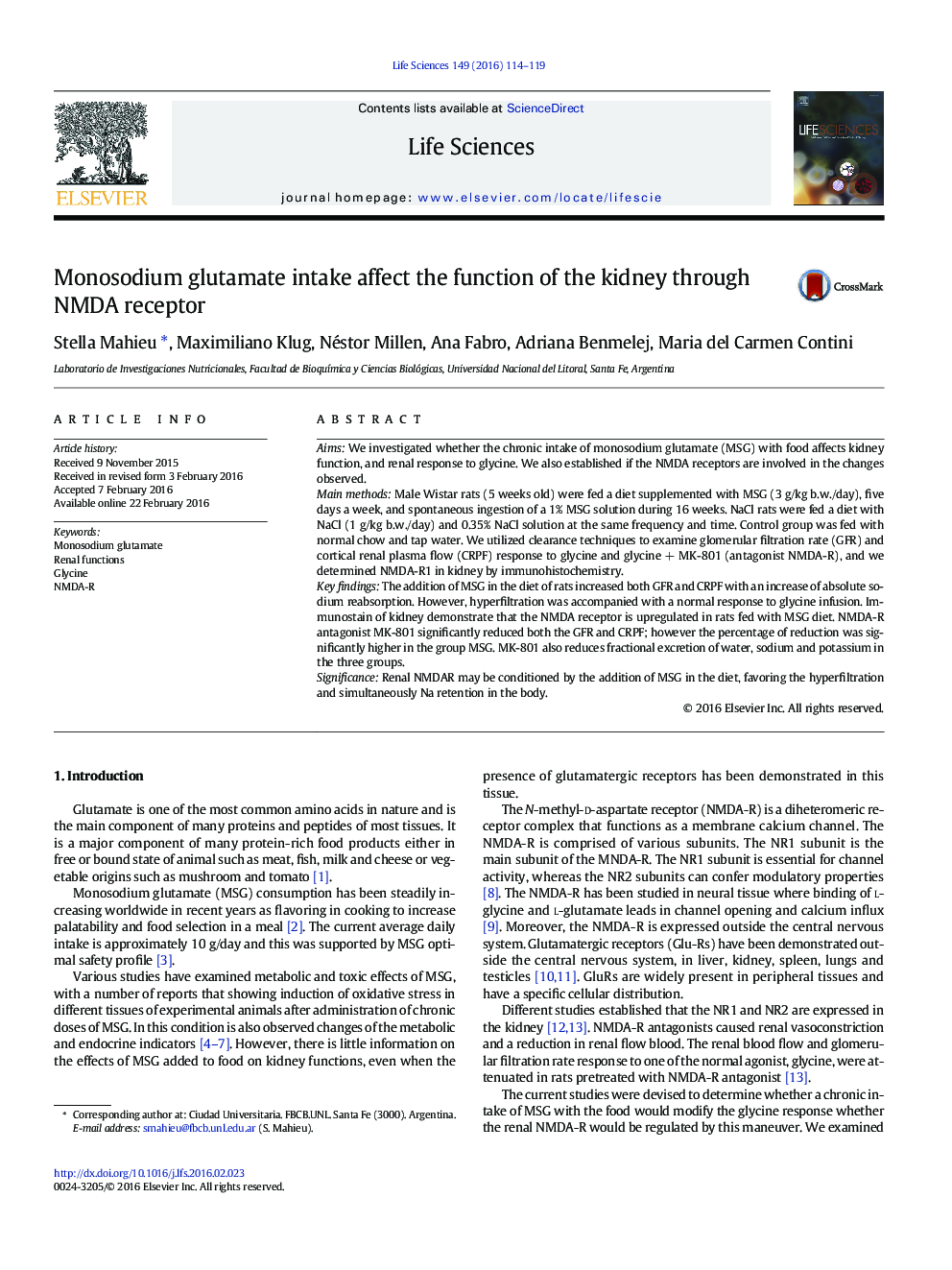| Article ID | Journal | Published Year | Pages | File Type |
|---|---|---|---|---|
| 2550645 | Life Sciences | 2016 | 6 Pages |
AimsWe investigated whether the chronic intake of monosodium glutamate (MSG) with food affects kidney function, and renal response to glycine. We also established if the NMDA receptors are involved in the changes observed.Main methodsMale Wistar rats (5 weeks old) were fed a diet supplemented with MSG (3 g/kg b.w./day), five days a week, and spontaneous ingestion of a 1% MSG solution during 16 weeks. NaCl rats were fed a diet with NaCl (1 g/kg b.w./day) and 0.35% NaCl solution at the same frequency and time. Control group was fed with normal chow and tap water. We utilized clearance techniques to examine glomerular filtration rate (GFR) and cortical renal plasma flow (CRPF) response to glycine and glycine + MK-801 (antagonist NMDA-R), and we determined NMDA-R1 in kidney by immunohistochemistry.Key findingsThe addition of MSG in the diet of rats increased both GFR and CRPF with an increase of absolute sodium reabsorption. However, hyperfiltration was accompanied with a normal response to glycine infusion. Immunostain of kidney demonstrate that the NMDA receptor is upregulated in rats fed with MSG diet. NMDA-R antagonist MK-801 significantly reduced both the GFR and CRPF; however the percentage of reduction was significantly higher in the group MSG. MK-801 also reduces fractional excretion of water, sodium and potassium in the three groups.SignificanceRenal NMDAR may be conditioned by the addition of MSG in the diet, favoring the hyperfiltration and simultaneously Na retention in the body.
